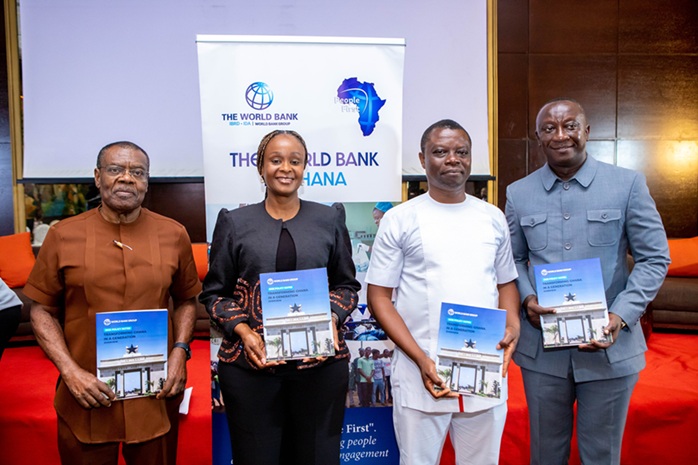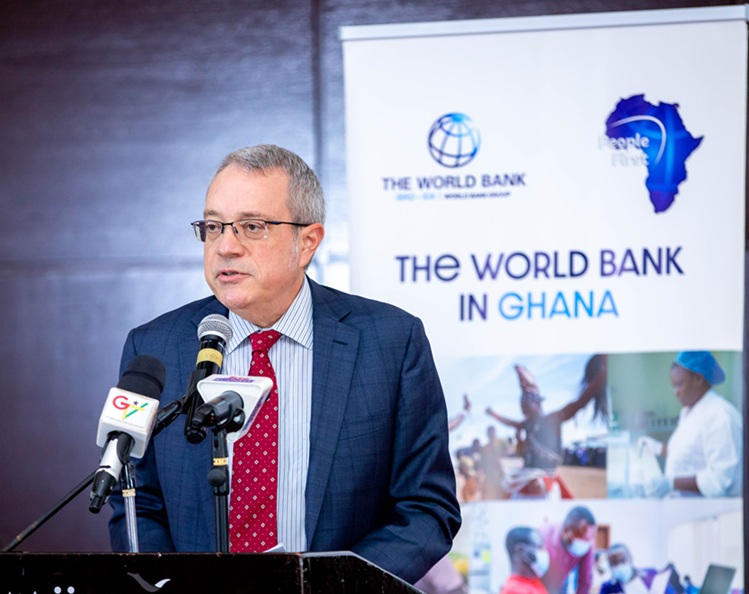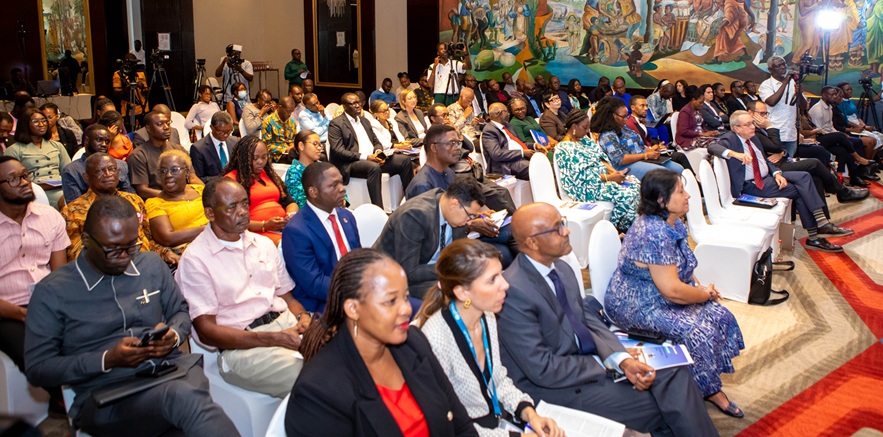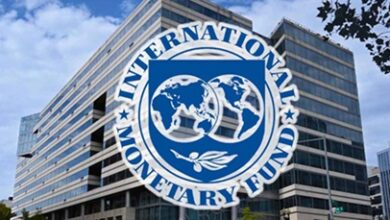Ghana Risks Entrenching Poverty Without Bold Economic Reforms- World Bank

Ghana is at risk of entrenching poverty and missing its long-term development targets unless it takes bold and sustained measures to overhaul its economy, the World Bank has cautioned.
In its latest Ghana Policy Notes, themed Transforming Ghana in a Generation, the Bank revealed that more than one in four Ghanaians still live below the poverty line. Even more concerning, Ghana’s per capita income has stagnated at around $2,200 over the past decade, signaling that while headline growth figures have been recorded in some years, the benefits have not translated into tangible improvements in people’s livelihoods.
The Roots of the Crisis
The World Bank said the 2022 economic meltdown which saw inflation soar past 50 percent, the cedi plummet to record lows, and debt declared unsustainable was not an isolated shock but the culmination of years of fiscal mismanagement and overreliance on natural resource exports.
“Ghana has experienced repeated cycles of boom and bust, where periods of high growth and resource inflows are followed by sharp economic downturns,” the report noted. “This pattern has undermined investor confidence, eroded savings, and limited the country’s ability to generate the quality jobs needed for inclusive development.”
Poverty and Stagnation
The report stressed that while sectors like oil, gold, and cocoa have fueled revenues, they have not generated sufficient jobs. Poverty remains entrenched in rural areas, particularly in the northern regions, while inequality between urban and rural communities continues to widen.
“More than a quarter of Ghanaians remain poor, and opportunities for upward mobility are shrinking,” the Bank warned.
The Reform Agenda
According to the Policy Notes, Ghana’s path out of this cycle requires urgent reforms in four key areas:
-
Restoring fiscal and financial stability – through stronger revenue mobilization, debt sustainability, and efficient public spending.
-
Boosting productivity and job creation – by supporting small and medium enterprises (SMEs), promoting agro-industrialization, and strengthening links between education, skills training, and labor markets.
-
Sustainably managing natural resources – to ensure mining, oil, gas, and agriculture generate long-term value rather than short-term windfalls.
-
Strengthening governance and trust – by improving transparency, accountability, and institutional effectiveness.

Robert Taliercio, World Bank Country Director for Ghana, Liberia and Sierra Leone, said Ghana now stands at a critical crossroads.
“Ghana has a unique opportunity to restore fiscal discipline, improve governance, and leverage natural and human capital resources for broad-based and inclusive development,” he said.
Jobs and Human Capital at the Centre
The report stressed that the real measure of progress lies not in GDP growth alone but in creating dignified jobs and investing in human capital. Ghana’s large youth population is both a potential dividend and a risk, depending on how quickly the economy can generate employment.
Stefano Curto, Lead Economist for Ghana, Liberia and Sierra Leone, noted that “The choices Ghana makes now can unlock a generation of inclusive, resilient growth, and deliver on the promise of sufficient quality jobs for its citizens.”

Warning on Borrowing
On financing, the Bank advised Ghana to tread cautiously on international borrowing, particularly Eurobond issuance. “A premature return to the Eurobond market could undo the fragile progress being made under the IMF-supported program,” the report cautioned, calling instead for a focus on domestic revenue mobilization and building investor credibility.
Path Forward
The report concludes that if Ghana can consistently implement reforms, it could lift millions out of poverty and achieve average annual growth of 6.5 percent by 2050. This, however, requires moving away from short-term fixes toward long-term strategies that link fiscal discipline with economic diversification.
For businesses, the message is clear: stability, predictability, and a strong policy framework are critical to restoring confidence and unlocking private investment. For citizens, the stakes are even higher—sustained reforms could mean the difference between remaining trapped in cycles of poverty or transitioning to a more inclusive and prosperous economy.



